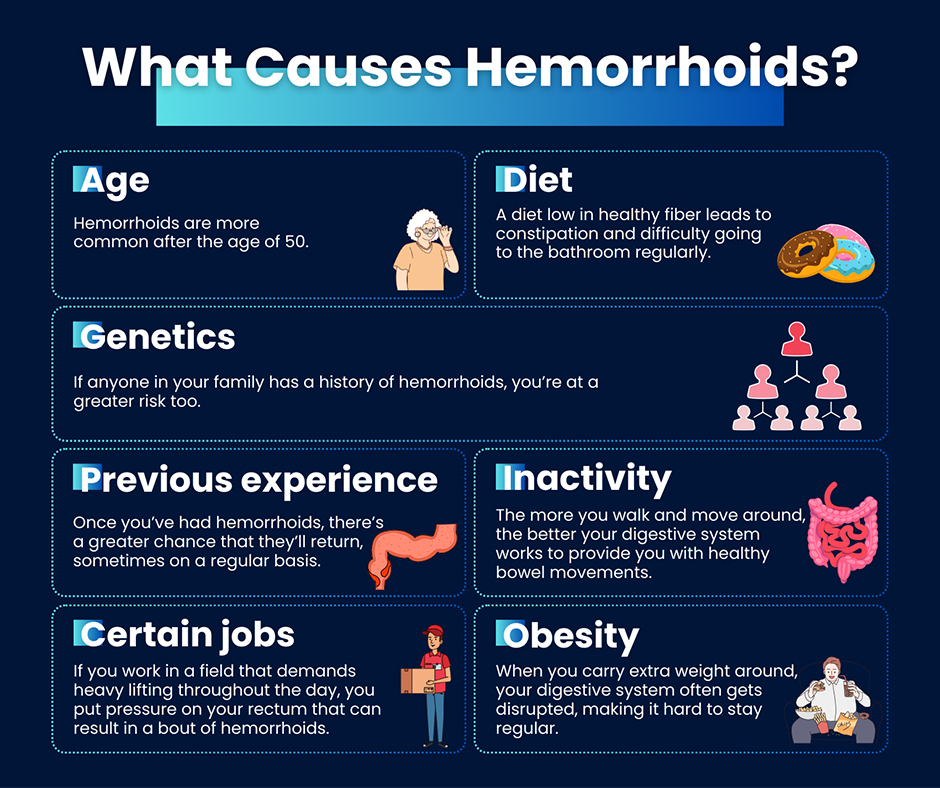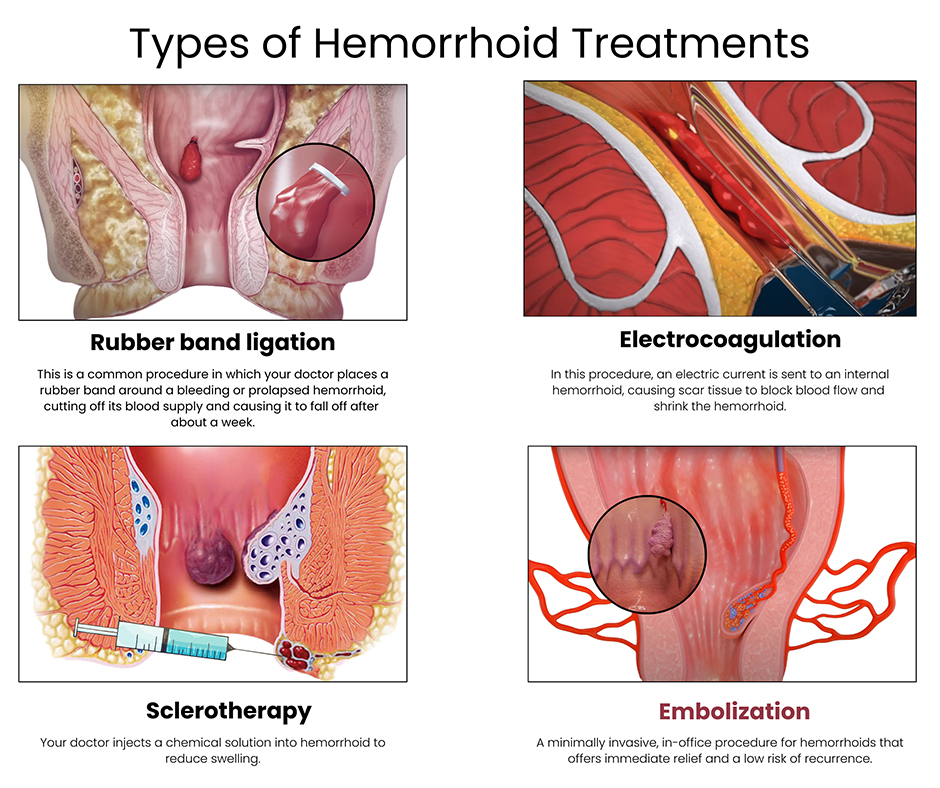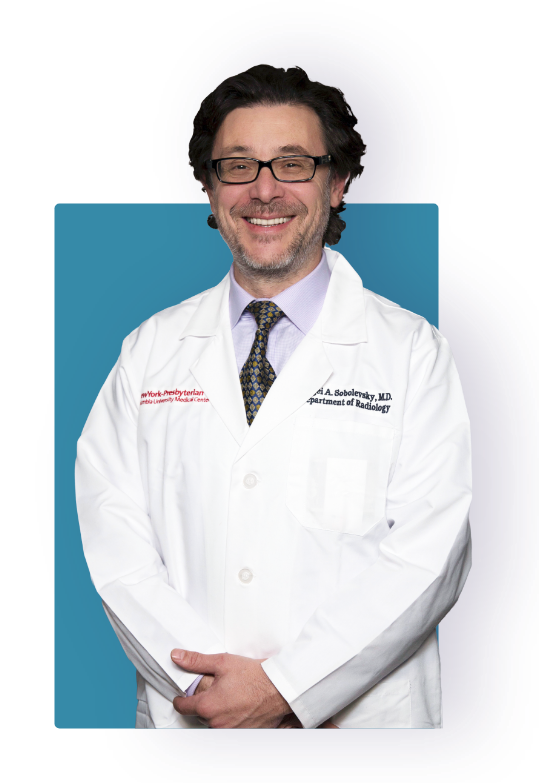A mild case of irritating hemorrhoids usually last about a week to 10 days. While some who’ve had them before use over-the-counter remedies, others just ride them out. If your hemorrhoids need to be treated by a doctor, your recovery time doesn’t last much longer than two weeks. If you don’t take advantage of the expertise of a specialist like Dr. Sergei Sobolevsky at the Downtown Vein & Vascular Center in NYC, the irritated veins may last much, much longer. Don’t take chances with your health or your comfort; call at the first signs of hemorrhoids and make an appointment.
What Are Hemorrhoids?
Hemorrhoids, sometimes referred to as piles, are small, inflamed veins located in the lower part of your rectum and around the outside of your anus. The condition can last from a week to many months without treatment. They appear as both hard or soft bumps, generally red in color and sometimes mucus-covered. There are two basic kinds of hemorrhoids: internal and external. External hemorrhoids are those that have been pushed out of the rectum, located just under the skin near the anus.
Basic types of hemorrhoids are strangulated, thrombosed or prolapsed. For the most part, hemorrhoids clear up within a few days, but everyone can benefit from medical advice offered by a hemorrhoid expert in NYC. If your hemorrhoids last longer than a week, call Dr. Sergei Sobolevsky at the Downtown Vein & Vascular Center in Brooklyn. He has the experience of providing the relief you want.
What Causes Hemorrhoids?
Hemorrhoids are caused by inflamed veins in the lower rectum and anus. Swelling happens when that area is subjected to excessive strain and pressure. The average person has a bowel movement one or more times a day to every three days. If you go every day and your soft stool passes easily, you’re in good shape.
Many different medical and lifestyle factors play into the role of how frequently you develop hemorrhoids and how long they last. For example, you shouldn’t sit on the commode for more than five minutes at a time.
The most prevalent causes of increased pressure in the pelvic area that result in hemorrhoids include:
- Age. Hemorrhoids are more common after the age of 50.
- Diet. A diet low in healthy fiber leads to constipation and difficulty going to the bathroom regularly.
- Genetics. If anyone in your family has a history of hemorrhoids, you’re at a greater risk too.
- Previous experience. Once you’ve had hemorrhoids, there’s a greater chance that they’ll return, sometimes on a regular basis.
- Inactivity. The more you walk and move around, the better your digestive system works to provide you with healthy bowel movements.
- Obesity. When you carry extra weight around, your digestive system often gets disrupted, making it hard to stay regular.
- Certain jobs. If you work in a field that demands heavy lifting throughout the day, you put pressure on your rectum that can result in a bout of hemorrhoids.

You can’t catch hemorrhoids. They’re never contagious, no matter how long they last or how long it takes for them to clear up. Additionally, the length of time it takes to cure hemorrhoids varies significantly from person to person.
What Happens if I Don’t Treat My Hemorrhoids?
Most hemorrhoids aren’t dangerous and vanish on their own within a week or so, many times even without treatment. But you will continue to suffer with pain, discomfort and itching for much longer if you don’t get proper hemorrhoids treatment when it’s needed. Within about 10 days to two weeks, untreated hemorrhoids can become acute, and that’s when the risks of complications increase.
Unwanted complications include:
- Severe pain
- Excessive bleeding that leads to anemia
- Blood clots that can travel to your heart, brain, kidneys or lungs, causing a stroke or heart attack
These complications are serious and open the door to even more critical health issues.
And if your doctor determines that your pain isn’t caused by hemorrhoids, you can miss an early intervention for conditions that it may be, such as:
- Colonic polyps
- Inflammatory bowel disease
- Peptic ulcers
- Colorectal cancer
- Colitis
What Treatments Cure Hemorrhoids the Quickest?
The best solution for hemorrhoids is always prevention. But once you get them, you want them to go away as soon as possible. Your doctor may first recommend over-the-counter ointments once it’s confirmed that you do indeed have hemorrhoids. These OTC treatments can work in as few as five to seven days.
Home remedies such as ice packs and warm baths are simple but effective for pain and discomfort relief.
Extreme cases may require a minimally invasive procedure, such as:
- Embolization, one of the safest and most effective means of hemorrhoid treatment. A specialty of Dr. Sobolevsky, it’s an advanced, minimally invasive, in-office procedure that removes hemorrhoids in days. It prevents trauma and incontinence while reducing the risk of recurring hemorrhoids.
- Rubber band ligation, in which your doctor ties off the hemorrhoids to cut off the blood supply. They fall off on their own within about a week.
- Coagulation, which relies on laser or infrared light to harden the veins. Coagulation offers a quick release within days.
- Sclerotherapy, which involves the use of chemicals injected into the inflamed tissue to dry up the hemorrhoids so they disappear in about a week.

What Specific Things Help Speed Up Hemorrhoid Recovery?
You can take several steps to ease your discomfort and speed up recovery. Sitting on pillows or cushions whenever possible relieves pressure around the rectum. Paying strict attention to personal hygiene is always important; however, cleanliness is crucial where hemorrhoids are involved. Make sure the area around your anus is kept clean and dry at all times.
To maintain good health, your doctor recommends that you return to your normal exercise routine as quickly as possible. But avoid strenuous exercises until your doctor reviews your healing progress. High impact exercises put undue pressure on the abdomen and anal area, causing unnecessary irritation to any existing hemorrhoids.
Additionally, take steps to:
- Go to the bathroom without delay, as that can cause a backup in your system that adds more pressure.
- Prop your feet up while sitting on the toilet. Using a small stool changes the position of the anal canal. This simple act relieves pressure, making bowel movements easier.
- Eat more nuts, fruits, vegetables and grains every day to increase your fiber intake. Ask your doctor about safe supplements that provide more fiber to your diet.
- Engage in cardiovascular workouts, such as jogging and swimming, to keep blood and oxygen flowing to your organs. Try walking, dancing and cycling.
- Develop a daily routine that includes deep breathing. This relaxes the pelvic floor and relieves tension.
- Practice yoga. Poses like the child’s pose, as well as pelvic floor exercises, increase circulation and strengthen muscles.
- Stay hydrated. This helps prevent constipation and reduces the strain of bowel movements.
- Maintain a healthy weight to ease pressure on the rectum.
If you’re currently suffering with hemorrhoids, address treatment options with your doctor as soon as possible. If your symptoms don’t get better, they may lead to complications and other health issues. Contact the Downtown Vein & Vascular Center in Brooklyn, NY. Dr Sobolevsky is a well-known, highly respected endovascular medicine specialist. He and his team assist you in assessing your condition and recommending a suitable treatment.

I am Dr. Sergei Sobolevsky, a leading specialist in endovascular medicine. Having performed over 25,000 procedures throughout my career, I bring decades of experience in vascular and interventional radiology to my practice. I obtained my Doctor of Medicine (MD) degree from the University of Colorado School of Medicine in 1997 and completed my specialty clinical training in vascular and interventional radiology at Harvard University.
My dedication to excellence in patient care has been recognized through accolades such as being named a Castle Connolly Top Doctor and inclusion in the Top Doctors New York Metro Area lists for 2020, 2021, 2022, and 2023. With licenses in multiple states, I have also shared my expertise through presentations at various institutions in the US and abroad.
More About Dr. SobolevskyDowntown Vein Treatment Center
480 Court Street, Ste 101
Brooklyn, NY 11231
(718) 787-5559


